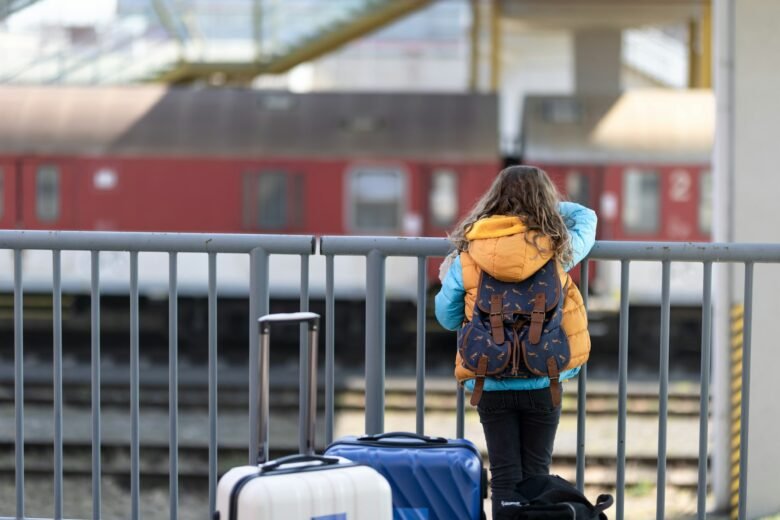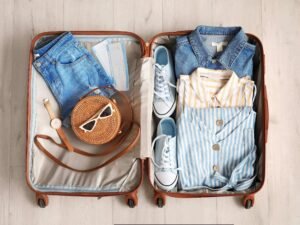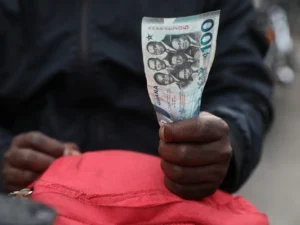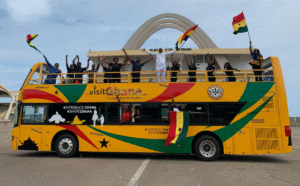Ghana is often considered one of the safest and most stable countries in West Africa. With friendly locals, vibrant markets, golden beaches, and rich historical sites, it’s no wonder travelers continue to flock here year-round. But like anywhere in the world, staying safe in Ghana requires some planning, awareness, and common sense.
Whether you’re a first-time visitor, digital nomad, or returning Ghanaian, this guide offers practical safety tips focused on health, scams, transport, and general awareness to help you enjoy your stay without unnecessary stress.
🏥 Health and Medical Safety
Health-related preparation is arguably the most important part of your trip to Ghana. Taking preventative steps before and during your visit will keep you safe from common tropical diseases and allow you to enjoy your experience without interruptions.
1. Vaccinations (Required and Recommended)
- Required: A Yellow Fever vaccination is mandatory for entry into Ghana. You’ll need your vaccination card to present at immigration.
- Recommended:
- Hepatitis A and B
- Typhoid
- Tetanus
- Rabies (for extended stays or rural travel)
- Meningitis (if traveling during the dry season)
Always consult a travel clinic at least 4–6 weeks before departure.
2. Malaria Prevention
Malaria is endemic in Ghana. To reduce your risk:
- Take antimalarial medication (e.g., Malarone, doxycycline, or mefloquine) as prescribed.
- Use insect repellent containing DEET or picaridin.
- Sleep under a mosquito net in rural areas or places without screened windows.
- Wear long sleeves and pants in the evening when mosquitoes are most active.
💡 Tip: You can buy effective local mosquito sprays in Ghana if you run out.
3. Food and Water Safety
Tap water is not safe for drinking. Stick to bottled, filtered, or boiled water.
- Avoid ice in drinks unless you know it’s made from filtered water.
- Eat freshly cooked food, especially from street vendors.
- Peel fruits yourself; avoid raw vegetables that may be washed in unsafe water.
- Wash hands frequently or use hand sanitizer.
Traveler’s diarrhea can happen—pack Imodium, oral rehydration salts, and a small medical kit just in case.
4. Emergency Medical Care
- Private hospitals in Accra (e.g., Nyaho Medical Centre, Akai House Clinic) offer better quality care than public ones.
- Always carry travel insurance with emergency evacuation coverage.
- In rural areas, medical services are limited. Travel with your prescription meds, and have a backup plan for serious health issues.
🛑 Common Travel Scams in Ghana
While violent crime is rare for tourists, petty scams do exist. Awareness is your best defense.
1. Currency Exchange Scams
- Always exchange money at reputable forex bureaus or banks.
- Avoid random individuals offering “better rates” in markets or at the airport.
- Count your cash carefully—watch for sleight-of-hand tricks.
2. “Helpful Stranger” Trap
Someone may approach offering assistance at an ATM, taxi, or market—then demand a tip, or worse, overcharge you.
- Be polite but firm. You don’t need help withdrawing money or navigating.
- If unsure, seek assistance from official staff or someone behind a counter.
3. Fake Tour Guides or Overpriced Tours
Tourists may be approached by individuals claiming to be tour guides.
- Book tours through verified platforms or your hotel.
- Agree on a price upfront before accepting services.
4. Taxi Overcharging
Taxis in Ghana don’t use meters. If you hop in without discussing a fare, expect inflated prices.
- Use ride-hailing apps like Bolt or Yango, especially in cities.
- If using a regular taxi, negotiate the fare before starting the ride.
5. Romance and “Friendship” Scams
Some individuals may try to build a quick relationship—especially online—with the goal of requesting money or help.
- Be cautious if someone you just met asks for favors, airtime, or money.
- Keep personal and financial details private.
🚌 Transport and Road Safety
1. Road Conditions and Traffic
Roads in major cities like Accra and Kumasi are decent but congested. Rural roads can be rough, especially during the rainy season.
- Avoid night travel—many roads are poorly lit, and accidents are more common.
- Hire a trusted driver for long distances, or use reputable bus services like STC or VIP Jeoun.
2. Public Transport (Trotros)
Trotros are shared minivans and a cheap way to get around. But:
- They’re often crowded and lack seat belts.
- Keep valuables close; pickpocketing can happen in busy areas.
Use them for short daytime rides, not long-distance travel unless you’re experienced.
🛏️ Accommodation and Neighborhood Awareness
- Choose accommodations with positive reviews, especially regarding cleanliness and security.
- Ask locals or your hotel which areas to avoid—especially at night.
- Avoid secluded beaches after dark and be careful with new acquaintances.
📶 Staying Digitally Safe
Digital scams and fraud attempts are increasingly common.
- Be cautious when using public Wi-Fi—avoid logging into bank accounts or sensitive apps.
- Enable two-factor authentication on important accounts.
- Don’t share your SIM card, phone, or banking info with strangers.
🧠 Cultural Awareness = Safety
Respecting Ghanaian customs can help you avoid misunderstandings and stay safe.
- Greetings matter: Always greet before asking for something.
- Dress modestly, especially in rural or religious areas.
- Public displays of affection are frowned upon in many parts.
- Avoid criticizing local politics or traditions, especially in public settings.
👮 What to Do in an Emergency
- For police: Dial 191
- For ambulance: Dial 112 or 193
- For fire services: Dial 192
Responses may be slow, especially outside major cities. Contact your embassy or travel insurance provider in serious cases.
✅ Final Safety Tips at a Glance
| Situation | Tip |
|---|---|
| Drinking water | Always use bottled or filtered water |
| Malaria prevention | Take prophylaxis and use insect repellent |
| Money exchange | Use banks or licensed forex bureaus |
| Transportation | Avoid night travel; use Bolt/Yango in cities |
| Street safety | Stay alert in crowded areas; carry a dummy wallet if needed |
| Digital safety | Avoid public Wi-Fi for sensitive tasks |
| Meeting strangers | Be friendly but cautious; don’t overshare |
| Medical issues | Know your nearest private clinic and have insurance ready |
🌟 In Summary
Ghana is a warm, vibrant country that welcomes millions of visitors each year—and most enjoy their stay without major problems. But safety isn’t just about avoiding danger; it’s about being prepared, informed, and respectful.
If you stay healthy, avoid common scams, and follow these practical tips, you’re well on your way to a safe and unforgettable journey through the heart of West Africa.




